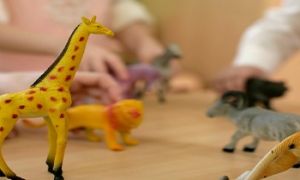

In the ongoing discourse around quality early childhood education, educator-to-child ratios often dominate the conversation. While ratios are undeniably important for supervision and safety, a critical yet under-addressed factor is the physical space allocated to each child. The reality is stark: even with ideal ratios, overcrowded rooms can undermine well-being, learning outcomes, and emotional safety.
Gossip is more than idle chatter; it’s a signal. In early childhood settings, where emotional labor runs high and relationships form the bedrock of quality practice, gossip can quietly unravel team cohesion. It erodes trust, fractures relationships, and creates emotional harm. But beneath the surface, gossip often reflects unmet needs, fear, and disconnection. The following article explores how restorative leadership can transform gossip into growth, offering practical strategies to rebuild emotional safety and team culture.
In the emotionally charged landscape of early childhood education, departmental decisions can feel final, overwhelming, and deeply personal. Whether it's a compliance breach, funding suspension, or licensing issue, educators often feel unheard, unsupported, and unsure of their rights. But procedural fairness is not a privilege—it’s a legal and ethical obligation. This guide aims to restore clarity, confidence, and emotional safety for those seeking to contest decisions with integrity and strength.
In early childhood education, ratios are more than numbers. They are the heartbeat of safety, connection, and quality care. Yet across Australia, educators are sounding the alarm: current ratios are failing both children and staff. The sector is bleeding talent, and the emotional toll is mounting. It’s time to reform ratios—not just to meet minimum standards, but to honour the dignity of every child and the well-being of every educator.
In the fast-paced rhythm of early childhood settings, transitions often feel like logistical hurdles—moments to be managed, timed, and moved through. But what if we reframed them as sacred pauses? As opportunities to restore emotional safety, deepen connection, and honour the inner worlds of both children and educators?
In early childhood education, some of the most powerful interventions don’t come from elaborate programs or expensive resources. They come from the quiet, intentional words educators choose in moments of emotional intensity. When a child’s body is flooded with frustration, fear, or sadness, it’s not logic they need; it’s presence. And that presence often begins with a few carefully chosen words. This article explores how emotionally intelligent language, gentle presence, and intentional silence can transform a child’s experience of safety, identity, and belonging.
Inquiry-based learners are curious, active participants in their own learning journey. Instead of passively receiving information, they ask questions, explore possibilities, and investigate real-world problems to construct their own understanding. The following is a breakdown of what defines an inquiry-based learner:
Gratitude songs before meals are more than just cheerful tunes; they’re rituals that nurture mindfulness, community, and appreciation in young children. By singing together, children learn to pause, acknowledge the effort behind their food, and celebrate the connections between nature, family, and community. These songs can be simple, repetitive, and symbolic, making them accessible for toddlers while still meaningful for older preschoolers.
In the wake of child abuse allegations and the rollout of policies like Four Eyes, early childhood educators are being asked to be more present, more vigilant, and more accountable. But presence alone is not enough. True safeguarding requires witnessing—not just watching. To witness is to be emotionally attuned, relationally responsive, and ethically grounded. It means seeing the child not as a subject of supervision, but as a whole person—worthy of affirmation, protection, and care.
In the wake of recent news, early childhood settings face a moral and professional imperative: to go beyond compliance and embed emotionally intelligent, culturally safe practices that truly protect children. This article introduces the Four V’s Framework—Visibility, Voice, Validation, and Vigilance, as a holistic model for safeguarding in early childhood education.
 As an Educator in Australia, your pay rate falls under the Children’s Services Award 2010. This award states the minimum amount that an employer can… Read More
As an Educator in Australia, your pay rate falls under the Children’s Services Award 2010. This award states the minimum amount that an employer can… Read More
 When working as a qualified Early Childhood Teacher (with a university degree) within a service, your rate of pay will come from the Educational Services… Read More
When working as a qualified Early Childhood Teacher (with a university degree) within a service, your rate of pay will come from the Educational Services… Read More
 When working as a Diploma Qualified Educator your pay rate is from the Children's Services Award 2010. This Award states your minimum rate of pay… Read More
When working as a Diploma Qualified Educator your pay rate is from the Children's Services Award 2010. This Award states your minimum rate of pay… Read More
 When working as a Cert 3 Qualified Educator, your pay rate is from the Children's Services Award 2010. This Award states your minimum rate of… Read More
When working as a Cert 3 Qualified Educator, your pay rate is from the Children's Services Award 2010. This Award states your minimum rate of… Read More
 Educational Leaders play a crucial role in their early childhood service by ensuring that the educational program aligns with best practices and supports the holistic… Read More
Educational Leaders play a crucial role in their early childhood service by ensuring that the educational program aligns with best practices and supports the holistic… Read More
 In early childhood education and care, ratios are more than a technicality—they are a frontline safeguard. Every child deserves responsive supervision, emotional connection, and developmental… Read More
In early childhood education and care, ratios are more than a technicality—they are a frontline safeguard. Every child deserves responsive supervision, emotional connection, and developmental… Read More
 Here’s a comprehensive Mobile Phone and Smart Watch Policy tailored for early childhood education and care (ECEC) services in Australia, aligned with the latest 2025… Read More
Here’s a comprehensive Mobile Phone and Smart Watch Policy tailored for early childhood education and care (ECEC) services in Australia, aligned with the latest 2025… Read More
 With the new national child safety reforms kicking in on 1 September 2025, early childhood services like yours have a real opportunity to lead the… Read More
With the new national child safety reforms kicking in on 1 September 2025, early childhood services like yours have a real opportunity to lead the… Read More
 The Sea of Fish Challenge is a national initiative that invites children, educators, families, and communities to create and display fish artworks as a symbol… Read More
The Sea of Fish Challenge is a national initiative that invites children, educators, families, and communities to create and display fish artworks as a symbol… Read More
 Across the early childhood education and care sector, educators are sounding the alarm: current staffing ratios are insufficient to deliver safe, meaningful, and developmentally appropriate… Read More
Across the early childhood education and care sector, educators are sounding the alarm: current staffing ratios are insufficient to deliver safe, meaningful, and developmentally appropriate… Read More

In early childhood education, the role of the Educational Leader is both visionary and grounded...
See more...
A: Observing a child's interest is key to understanding their passions and learning preferences.
See more...
According to the Children’s Services Award 2010, all employees fall under a classification structure, this...
See more...© 2009-2025 Aussie Childcare Network Pty Ltd. All Rights Reserved.

